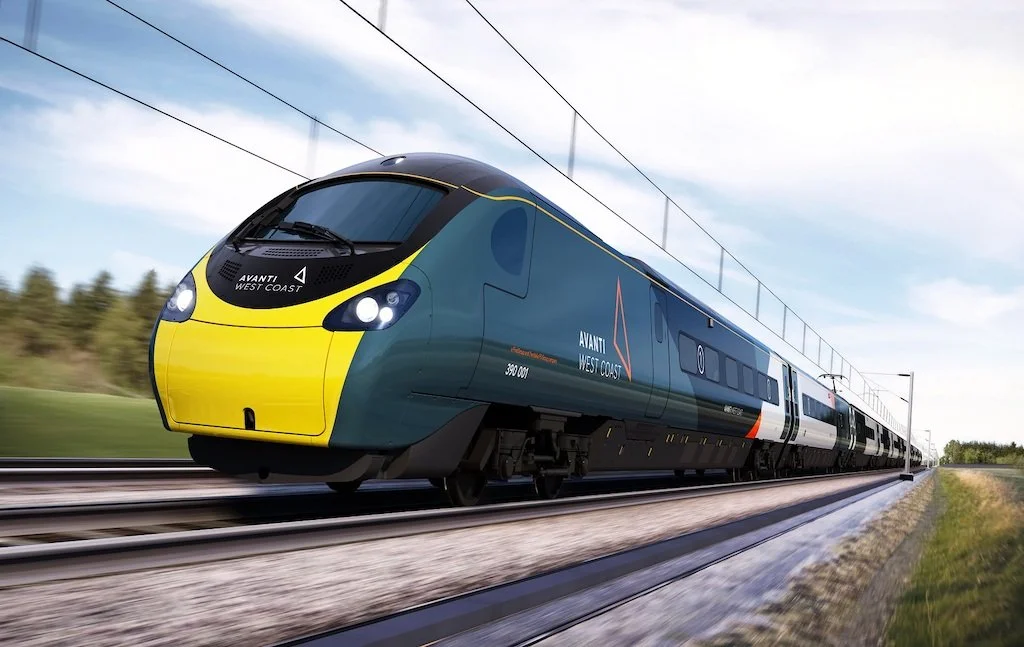Review says alternative Birmingham to Manchester rail link is viable and vital
A report commissioned by the Mayors of Greater Manchester and the West Midlands has concluded there is a viable option to build a new rail line between Birmingham and Manchester that would deliver many of the benefits of HS2 at a lower cost.
Andy Burnham, Mayor of Greater Manchester and Andy Street, the then Mayor of the West Midlands, commissioned the report following the announcement in October 2023 from the previous Government that it was cancelling the Birmingham to Manchester section of HS2.
In response the two metro mayors last December appointed a private sector consortium to review the role of enhanced connectivity in catalysing growth, skills and jobs across the city-regions, and to explore opportunities for greater private sector involvement in delivering and financing new solutions.
The review, chaired by infrastructure expert and former HS2 chairman Sir David Higgins, was led by Arup alongside a private sector consortium of Addleshaw Goddard, Arcadis, Dragados, EY, Mace and Skanska.
Their newly published report found that a new 80km Midlands-North West Rail Link (MNWRL) should be built, in stages and in partnership with private investors to provide the capacity and connectivity benefits of HS2, but at “a far lower cost”.
The report says the link will connect towns and cities across the Midlands and the North, providing critical capacity and better service for passengers and freight across the UK.
This new report argues that doing nothing is not a viable option from either economic or operational perspectives.
Andy Burham, Mayor of Greater Manchester, said, “The report is clear: if we fail to put in place a plan soon to fix rail capacity and connectivity between the North and the Midlands, the already-congested West Coast Main Line and M6 will become major barriers to economic growth in the UK.
"But there is good news for the government. The report concludes that we do not have to revive HS2 to unlock those benefits.
“There is a viable option to build a new rail line between Lichfield and High Legh, connecting HS2 to Northern Powerhouse Rail, with almost all of the benefits of HS2 delivered quickly and crucially at a significantly lower cost.
“Doing nothing is not an option as demand for rail services on the West Coast Main Line is set to exceed capacity within a decade.
“We are ready to work with government, colleagues in the West Midlands and the business community to build a railway fit for the 21st century. But we do need early decisions to end the uncertainty."
Richard Parker, Mayor of the West Midlands, added, “This report confirms what we’ve been saying – additional rail capacity to and from the North is vital for the West Midlands. It’s about more than quicker journeys; it’s about connecting people, communities, and businesses to jobs and opportunities.
“I’ll work with the government to ensure this happens, but we must also learn from successful rail systems around the world to deliver the best network and real value to the public. Without this extension, we will continue to be reliant on the West Coast mainline, which is already maxed out and impacting on the people of this region and wider.
“We need to free up capacity and we need to get this right - for our future and our economy.”
The review chair Sir David Higgins said the plan aimed to get connectivity between the Midlands and the North-west “back on track”.
“We don't pretend that solving the rail challenges between these two places will be easy. We know it will be hard graft. What we need now is for the new government to work together with the business community and combined authorities – take the practical steps to make a new rail link a reality.
“We have conclusively shown that a new line can be built cheaper and faster – we now need to get on and deliver it.
“Our future connectivity – and by extension, the economic and social health of our society for generations to come – depends on us making the right choices today.”
The report argues private sector funding through a Special Purpose Vehicle would be more affordable for Government, could allow better cost control, be delivered faster and enable better risk management. Financing for the project should be maximised from the private sector, with central and local governments partnering to form the balance, the report says. Revenue, it suggests, could be in the form of availability and performance payments for government or HS1-style track access contracts.
The report also calls for the government to establish a steering group involving the private sector, combined authorities and the Government to produce a feasibility study and technical analysis.

